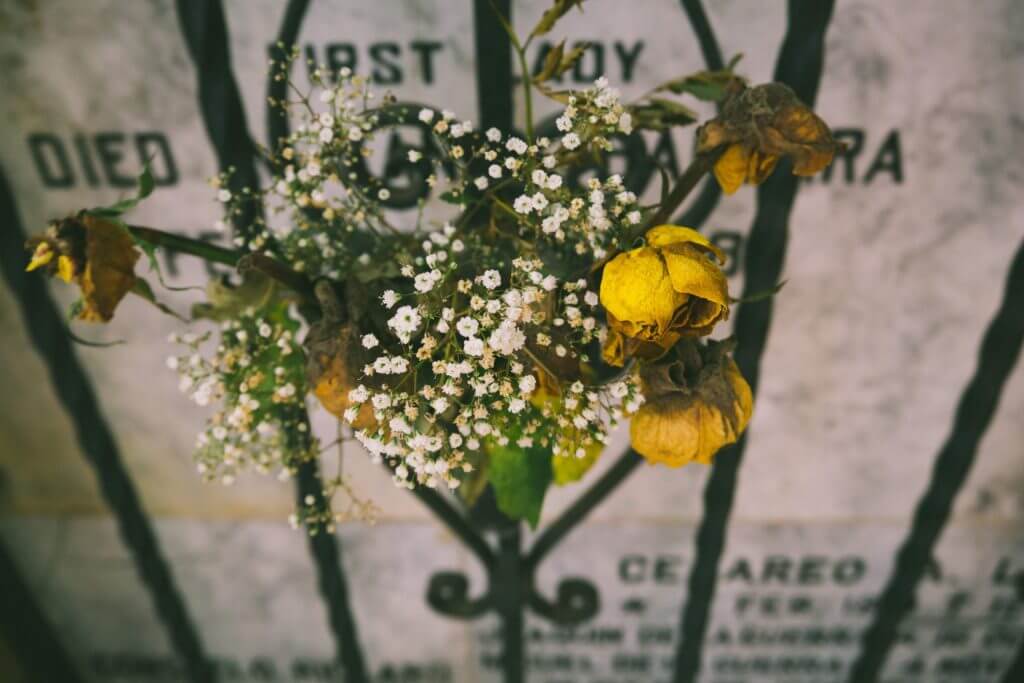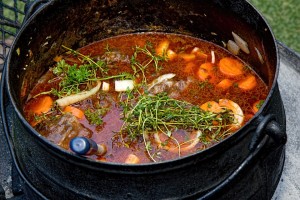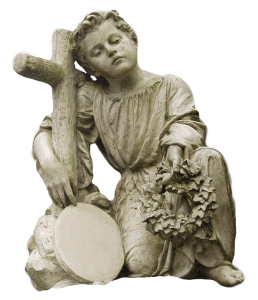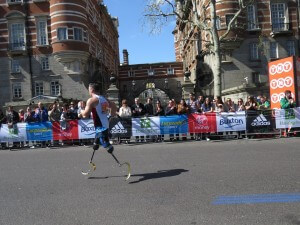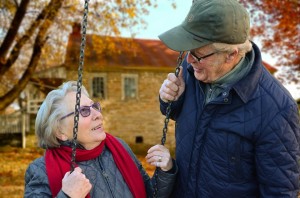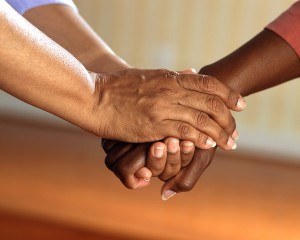The storm of losing a spouse leaves behind muddy waters and ripples that last a lifetime, even into new relationships and seasons of life. There are those who wait years, even decades, before deciding they’re ready for a romantic relationship again.
Others know after a handful of months that they want another companion. For everyone though, grief is as unique as the individual experiencing it. Beginning to date again after being widowed can be a difficult course that needs prayer and discernment along with an understanding of the journey through grief.
Grief Is Like A Stew
Deacon Richard Kulleck, the Director of Deacon and Lay Ministries Formation for the Diocese of Boise, Idaho, recently gave a presentation on A Grief Observed by C. S. Lewis. As he spoke on what one of Christianity’s greatest writers had experienced after losing his wife to cancer, Deacon Kulleck shared his own journey of bereavement: His wife of forty years had died of cancer twenty months ago.
He had expected the classic stages of grief, which were first coined by Elizabeth Kübler-Ross: denial, anger, bargaining, depression, and acceptance. However, he was surprised by the way he experienced them.
He explained, “I had all those things happen to me, but they didn’t come in sequence. 'Stages' makes it sound like a ladder or a staircase, but it was more like dipping into a stew. You take a ladle and dip into a stew pot, and sometimes you get potatoes and sometimes you get meat and sometimes you get potatoes again.” He stated that expecting your grief to be sequential, as something that can be checked off in a to-do list can frustrate your path to healing.
Deacon Kulleck also said, “The other thing about grief as a stew is that you have to eat it until it’s
done. The stew stays in the pot until you’ve eaten all of it.”
He continued, “I have experienced that my grief has become less an every day, every minute experience for me. When I do feel it, it is as intense as it ever was, but just not as frequent. I call these ‘grief bursts.’ Like a cloud burst, all of a sudden it’s there, and it’s overwhelming.”
Nancy Bridges, a chaplain and certified grief counselor, says it is important to remember that you can’t avoid the pain of grief and that there are no quick fixes.
Having helped victims of the Oklahoma City bombing in 1995 and having served in hospice care for over 21 years, she states that no matter the circumstances of the death of a spouse, you can't rush through grieving. “You can’t walk under or over it, you’ve got to walk through it. It can be a painful journey,” she said.
The Danger Signs of Being Stuck in Grief
Anisa Ralls, LMHC, an emergency department social worker in Seattle who sees people who are in crisis situations with grief, gives warning signs that someone might be stuck in grief:
- Difficulty with relationships and work
- Difficulty managing emotions
- Substance abuse
- Gambling
- Eating addictions
- Sexual addictions
- Rumination about the death and longing for the deceased
- Identity confusion
- Inability to accept the loss
- Loss of interest or pleasure in activities
- Bitterness
- Difficulty trusting others
She s
ays, "These symptoms would need to be daily, causing impairment in their life and persist for more than six months after the loss. I would recommend going to see a mental health professional to rule out an underlying depressive or mood disorder, especially if there are thoughts of suicide or wishing you could be with that person who died.”
In Death Life Is Changed, Not Ended
On coping with the emotions of grief, Deacon Kulleck says, “I told myself when my wife died that I was not going to judge any of my feelings.” He iterated that feelings are reactions to life and are not sinful. He warns against nurturing negative feelings into a sin by holding onto them. However, he feels it aids a person to allow their feelings to simply come out and to not criticize themselves for them.
Ms. Bridges also feels i
t is important for people to let their emotions be free. Like Deacon Kulleck, she warns against feeding emotions into something unhealthy, “We can get energy from our emotions, even if they aren’t positive emotions.” These emotions can become a person’s identity, which is one of the way’s people get stuck in grief.
Deacon Kulleck compares losing a spouse to someone who loses a limb. He points out that there are those who lose a leg and then let that experience define them. There are others, however, who will go on to run a marathon despite the lost leg—they accept their circumstances, but refuse to be identified by them.
Deacon Kulleck explains further, “St. Irenaeus said, ‘The glory of God is the human person fully alive.’ I’m not giving any glory to God if I turn my life into a shrine for a dead person.”
Becoming Fully Alive Again
The Very Rev. Father Ben Uhlenkott, V. U. is pastor of St. Mark’s Catholic Parish in Boise, Idaho and dean of the West Central Deanery. For over ten years he has helped widows and widowers through their grief.
When asked how a widowed spouse can discern if they are ready for a new relationship, Father Uhlenkott replied, “If they want to start into another exclusive relationship and are still terribly wounded by the death of their spouse, I see little chance that the new relationship will be successful. They have to know who they are and be able to look at their past and see it as it is, the good and the sorrowful."
He believes that those who are ready for a new relationship are emotionally stable and live purposeful lives with good friends—specifically friends that are true through thick and thin, but won’t hesitate to admonish if necessary.
When asked what he wished those widowed would keep in mind as they pursue a new relationship, Father Uhlenkott said, “Each relationship is different because each person is different. You have to be able to adapt to change and not transfer what you were used to in your previous m
arriage onto this new person. You have to start over. You may have a lot of experience in relationship based on years, but it doesn’t make you an expert with every relationship."
He continues by saying that internalizing and reflecting on your experiences from your previous relationship can bring meaning and depth to the new one, but it's important to keep in mind that the new relationship is different.
He encourages, “Love the other person as they are, not as you want them to be or as a substitute for what you’ve lost. That person who has died is dead, let them rest in peace. Take courage that more of life awaits you."
Keeping the Kids in Mind
At CatholicMatch, most members who are widowed spouses have adult children. The dynamics of seeking a new relationship while still raising children are different than having grown children who have lives of their own. However, adult children still have strong feelings about their deceased parent. Ms. Bridges says, “You need to remember you are still a family even though one of the parents has died."
She urges that children not find out
about a parent’s dating from another source. She encourages lots of dialogue and patience with adult children, remembering that though you lost the same person, the relationships and bonds were different. Parents and children need to have mutual respect for each other.
Father Uhlenkott concurs, "If you have children from the previous relationship, don’t neglect their feelings. If they have an inheritance coming to them, make sure you don’t co-mingle the inheritance with the new relationship and the 'new’ children that come with that relationship. The children from the first relationship can become very resentful if they feel as though Mom or Dad's life, though now dead, is being absorbed into this new relationship."
"Respect your children’s memory of their dead parent. Make sure some of the 'stuff' is kept where it belongs—it is like a secular sacrament to them (showing the visible reality of their dead parent, who cannot be seen except in the inherited things and in their memories). Honor the dead and the anniversary of the death of the first spouse. This may be awkward, but important for the children.”
Healing and New Life
Ms. Bridges brings to light that among the problems of grief, even during dating, is spiritual pain. Father Uhlenkott said, “I would say definitely the Sacraments and sacramentals help with spiritual healing. It is th
e nature of the Sacraments of Reconciliation and Anointing of the Sick."
"Frequent reception of the Eucharist brings the substantial presence of Jesus into your very body. What could be more healing than Christ himself, the Author of Salvation and God being a part of our lives."
"In the Sacraments, we don't just read about Him or think about Him, but He actually is physically a part of our lives!”
There is success in choosing romance after the death of a spouse. So, don't lose heart. Among the most popular stories on CatholicMatch Institute is the one about Doug and Mary, who bonded together over their grief. The stories of Brenda-Lea and Patrick and of Paul and Maria also offer encouragement to widowed members who want the joy of romantic companionship.
